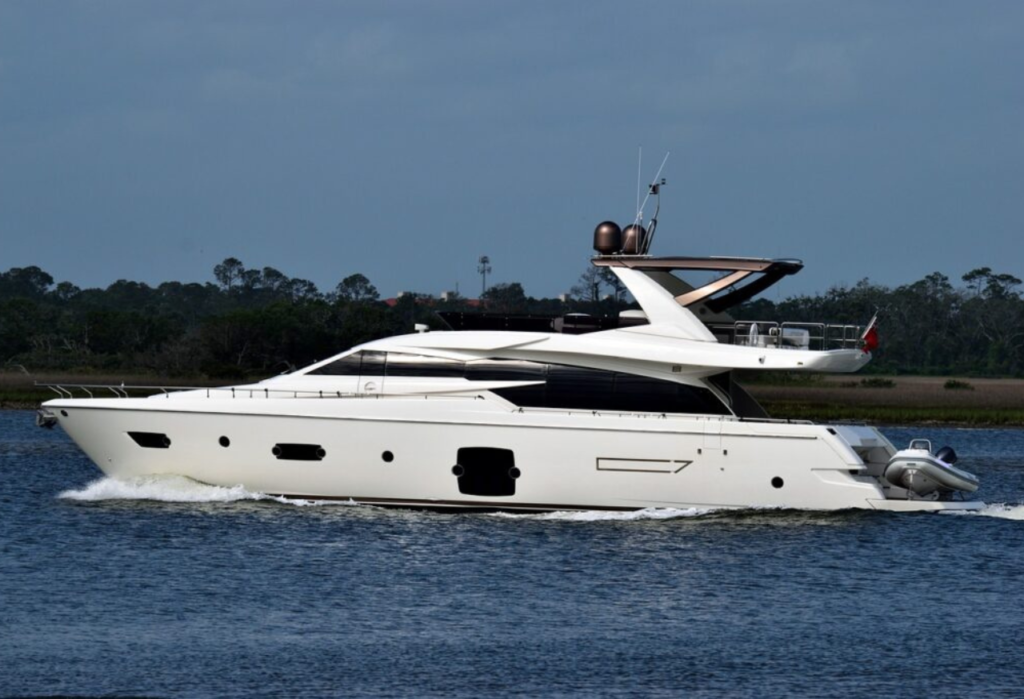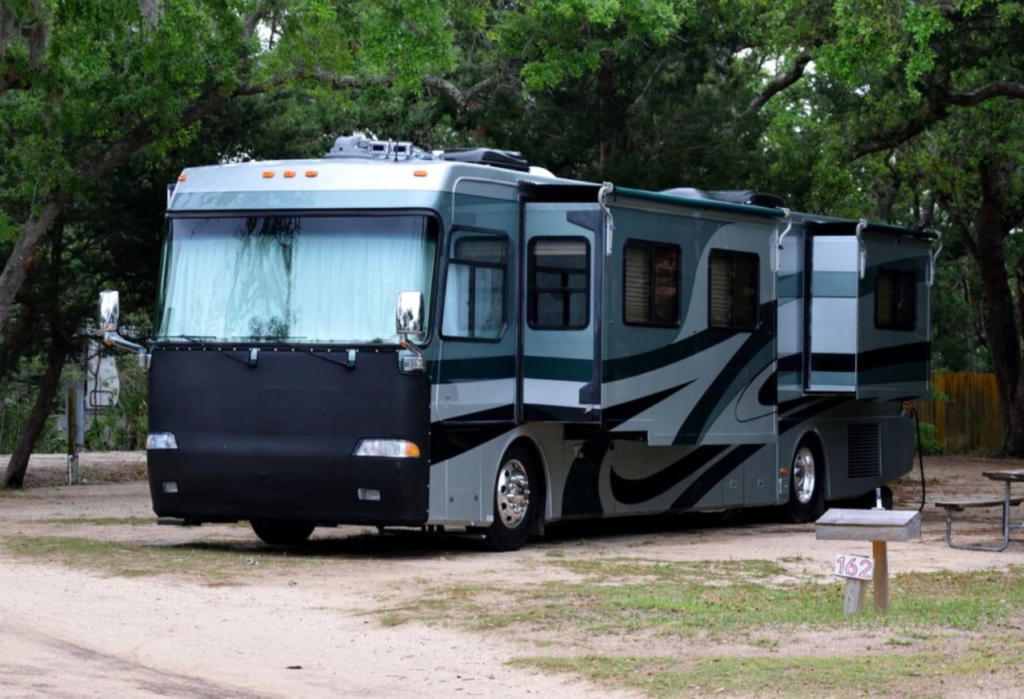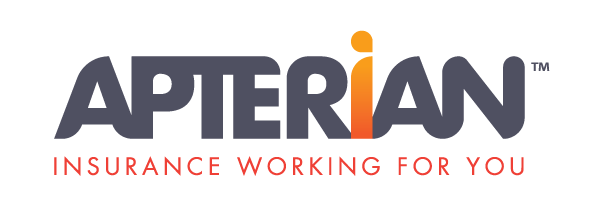
Auto Insurance
Vehicle Insurance, also known as auto insurance, provides financial protection against physical damage or bodily injury resulting from traffic collisions and against liability that could also arise from incidents in a vehicle. Here are the main types of vehicle insurance coverage:
Liability Insurance: Covers bodily injury and property damage that you may cause to others while driving. It’s typically mandatory in most states or countries.
Collision Coverage: Pays for damage to your vehicle resulting from a collision with another vehicle or object, regardless of fault.
Comprehensive Coverage: Covers damage to your vehicle caused by events other than collisions, such as theft, vandalism, fire, natural disasters, or hitting an animal.
Uninsured/Underinsured Motorist Coverage: Protects you if you’re involved in an accident with a driver who has no insurance or insufficient insurance to cover your losses.
Personal Injury Protection (PIP): Also known as no-fault insurance, PIP covers medical expenses, lost wages, and other damages for you and your passengers regardless of who is at fault in an accident.
Medical Payments Coverage: Similar to PIP, medical payments coverage pays for medical expenses resulting from an accident, regardless of fault, but typically has lower coverage limits than PIP.
Gap Insurance: Covers the difference between what you owe on your car loan or lease and the actual cash value of your vehicle if it’s totaled in an accident. It’s useful for new cars that depreciate quickly.
Rental Reimbursement Coverage: Pays for the cost of renting a vehicle while your car is being repaired due to a covered claim.
Towing and Labor Coverage: Covers the cost of towing your vehicle and certain labor costs, such as changing a flat tire or jump-starting a dead battery.
Custom Parts and Equipment Coverage: Provides coverage for aftermarket upgrades, modifications, or accessories installed in your vehicle, such as stereo systems or custom wheels.
Homeowner Insurance
Homeowner Insurance is a type of property insurance that provides financial protection for homeowners against losses and damages to their homes and personal belongings. It typically covers various perils such as fire, theft, vandalism, windstorm, hail, and other hazards. The importance of Homeowner Insurance include:
Property Protection: Homeowner insurance safeguards one of the most significant investments an individual can make—their home. It provides coverage for structural damage to the house itself, as well as other structures on the property like garages or sheds.
Belongings Coverage: In addition to protecting the structure of the home, homeowner insurance also extends coverage to personal belongings within the home, such as furniture, appliances, electronics, clothing, and other valuables. This coverage helps replace or repair items damaged or stolen due to covered perils.

Liability Protection: Homeowner insurance includes liability coverage, which protects homeowners from legal responsibility for injuries or property damage to others that occur on their property. It helps cover legal fees, medical expenses, and settlement costs if a lawsuit is filed against the homeowner.
Mortgage Requirement: Many mortgage lenders require homeowners to have insurance coverage as a condition of the loan. This requirement ensures that the lender’s financial interest in the property is protected in case of damage or loss.
Peace of Mind: Having homeowner insurance provides peace of mind to homeowners, knowing that they have financial protection in place to handle unforeseen events that could potentially result in significant financial losses. It offers a sense of security and stability for homeowners and their families.

Renters Insurance
Renters Insurance is a type of insurance policy designed to provide financial protection for individuals who rent their homes. Unlike homeowner insurance, which typically covers the structure of the dwelling, renters’ insurance primarily focuses on protecting the tenant’s personal belongings and providing liability coverage. The importance of Renters Insurance include:
Belongings Protection: Renters insurance protects a tenant’s personal property, including furniture, electronics, clothing, and other valuables, from covered perils such as fire, theft, vandalism, and water damage. It helps replace or repair these items if they are damaged, destroyed, or stolen.
Liability Coverage: Renters insurance includes liability coverage, which protects tenants from financial responsibility for injuries to others or property damage that occurs within their rented space. It helps cover legal expenses, medical bills, and potential settlements if the tenant is found liable for an accident or injury.
Temporary Housing Assistance: In the event that a rental property becomes uninhabitable due to a covered loss, renters’ insurance may provide coverage for additional living expenses, such as hotel bills or temporary rental costs, until the tenant can return to their home.
Affordability: Renters insurance is generally affordable, making it accessible to renters of all income levels. The cost of coverage is typically much lower than that of homeowner insurance since it does not include coverage for the structure of the building.
Landlord Requirements: Some landlords may require tenants to purchase renters’ insurance as a condition of the lease agreement. This requirement helps protect both the landlord’s property and the tenant’s belongings, reducing disputes and potential financial losses for all parties involved.
Peace of Mind: Renters insurance provides peace of mind to tenants, knowing that they have financial protection in place to handle unexpected events that could result in the loss or damage of their personal property. It offers security and stability in the rented living environment.
Condo Insurance
Condo Insurance, also known as condominium insurance or HO-6 insurance, is a type of insurance policy specifically designed for condominium unit owners. Unlike renter’ insurance, which covers only personal belongings and liability within a rented space, condo insurance provides coverage for both the unit itself and the owner’s personal property. The importance of Condo Insurance include:
Unit Structure Protection: Condo insurance covers the interior structure of the condominium unit, including walls, floors, ceilings, fixtures, and built-in appliances. It helps repair or rebuild these elements in the event of damage from covered perils such as fire, windstorm, vandalism, or theft.
Personal Property Coverage: Similar to renters’ insurance, condo insurance protects the owner’s personal belongings inside the unit, such as furniture, electronics, clothing, and other valuables. It provides financial reimbursement for the repair or replacement of these items if they are damaged, destroyed, or stolen.

Liability Protection: Condo insurance includes liability coverage, which protects the unit owner from financial responsibility for injuries to others or property damage that occurs within the unit or as a result of the owner’s actions. It helps cover legal expenses, medical bills, and potential settlements if the owner is found liable for an accident or injury.
Loss Assessment Coverage: In some cases, condo associations may levy special assessments on unit owners to cover damages to shared areas of the condominium complex, such as the roof, exterior walls, or common areas. Condo insurance may provide coverage for these assessments, helping owners avoid unexpected financial burdens.
Additional Living Expenses: If a covered loss renders the condominium unit uninhabitable, condo insurance may provide coverage for additional living expenses, such as hotel bills, temporary rental costs, or dining expenses, until the unit is repaired, and the owner can return home.
Mortgage Requirement: Similar to homeowner insurance requirements for mortgage lenders, condominium associations may require unit owners to purchase condo insurance as a condition of the condominium association agreement. This requirement helps protect the financial interests of both the owner and the association.
Overall, having condo insurance is essential for condominium unit owners to protect their investment, personal belongings, and financial well-being in the event of unexpected accidents, damages, or liabilities.

Landlord Insurance
Landlord Insurance, also known as rental property insurance, is a type of insurance policy designed specifically for property owners who rent out their properties to tenants. This insurance provides financial protection for landlords against various risks and liabilities associated with renting out residential or commercial properties. The importance of Landlord Insurance include:
Property Protection: Landlord insurance protects the physical structure of the rental property, including the building itself, as well as other structures on the premises such as garages or sheds. It provides coverage for damages caused by covered perils such as fire, vandalism, windstorm, and other hazards.
Loss of Rental Income: In the event that a rental property becomes uninhabitable due to a covered loss, landlord insurance may provide coverage for lost rental income. This helps landlords mitigate the financial impact of vacancies and continue to meet their financial obligations, such as mortgage payments and property taxes.
Liability Coverage: Landlord insurance includes liability coverage, which protects landlords from legal responsibility for injuries to tenants or third parties that occur on the rental property. It helps cover legal fees, medical expenses, and potential settlements if the landlord is found liable for an accident or injury.
Tenant Damage: Landlord insurance may provide coverage for damages caused by tenants, such as accidental fires, vandalism, or negligent behavior. This coverage helps landlords repair or replace damaged property and minimize financial losses.
Legal Protection: Landlord insurance can offer legal protection for landlords in the event of disputes with tenants, eviction proceedings, or lawsuits related to the rental property. It helps cover legal expenses and provides support throughout the legal process.
Additional Coverages: Depending on the policy, landlord insurance may offer additional coverages such as coverage for contents owned by the landlord (e.g., appliances, furniture), landlord liability for wrongful eviction, and coverage for rental property under construction or renovation.
Overall, landlord insurance is essential for property owners renting out their properties as it provides comprehensive financial protection against the risks and liabilities associated with property management. It offers peace of mind and ensures that landlords can protect their investment and manage their rental properties with confidence.
Motorcycle Insurance
Motorcycle Insurance is a specialized type of insurance coverage designed to provide financial protection for motorcycle owners against various risks and liabilities associated with owning and operating a motorcycle. The importance of Motorcycle Insurance include:
Liability Protection: Motorcycle insurance typically includes liability coverage, which protects the policyholder against financial responsibility for injuries or property damage caused to others in an accident where the motorcyclist is at fault. This coverage helps cover legal fees, medical expenses, and property damage costs for third parties.
Personal Injury Coverage: Motorcycle insurance often includes personal injury protection (PIP) or medical payments coverage, which helps cover medical expenses for the policyholder and their passengers in the event of an accident, regardless of fault. This coverage can help offset medical bills, rehabilitation costs, and lost wages.

Property Damage Coverage: Motorcycle insurance may include coverage for damage to the insured motorcycle resulting from accidents, theft, vandalism, or other covered perils. This coverage helps repair or replace the motorcycle if it is damaged or stolen.
Uninsured/Underinsured Motorist Coverage: Motorcycle insurance can include coverage for accidents involving uninsured or underinsured motorists. This coverage helps protect the policyholder if they are involved in an accident with a driver who lacks sufficient insurance coverage to fully compensate for damages.
Customization Coverage: Many motorcycle insurance policies offer coverage for aftermarket upgrades, modifications, or accessories installed on the motorcycle, such as custom paint jobs, upgraded exhaust systems, or aftermarket parts. This coverage helps protect the investment in personalized features added to the motorcycle.
Legal Requirements: In many jurisdictions, motorcycle insurance is legally required for motorcycle owners to operate their vehicles on public roads. Failure to maintain proper insurance coverage can result in fines, penalties, or even the suspension of driving privileges.
Financial Protection: Motorcycle insurance provides financial protection and peace of mind for motorcycle owners, ensuring that they are adequately covered in the event of accidents, theft, or other unforeseen events. Having insurance coverage can help alleviate financial burdens and protect the owner’s investment in their motorcycle.

All-Terrain Vehicle (ATV)/Off Road Insurance
ATV/Off-Road Insurance is a specialized type of insurance designed to provide financial protection for off-road vehicles such as all-terrain vehicles (ATVs), dirt bikes, dune buggies, and utility task vehicles (UTVs). This coverage helps owners safeguard their vehicles against various risks and liabilities associated with off-road recreational activities. The importance of ATV/Off-Road Insurance include:
Property Protection: ATV/Off-Road Insurance offers coverage for damages to your vehicle resulting from accidents, collisions, theft, vandalism, fire, or natural disasters. It helps repair or replace your ATV or off-road vehicle in case of damage or loss.
Liability Coverage: This insurance includes liability coverage, which protects you from financial responsibility for injuries to others or property damage caused by your ATV or off-road vehicle. It helps cover legal fees, medical expenses, and potential settlements if you’re found liable for an accident.
Medical Payments Coverage: ATV/Off-Road Insurance may provide coverage for medical expenses resulting from injuries sustained while operating your vehicle. This coverage can help pay for hospital bills, doctor’s fees, and rehabilitation costs, regardless of fault.
Uninsured/Underinsured Motorist Coverage: Protects you if you’re involved in an accident with an uninsured or underinsured ATV rider or off-road vehicle operator. It helps cover your medical expenses and damages to your vehicle if the other party is unable to pay.
Accessory Coverage: Some ATV/Off-Road Insurance policies offer coverage for aftermarket accessories or modifications installed on your vehicle, such as custom parts, winches, racks, or GPS systems. This coverage ensures that your investments are protected in case of damage or theft.
Trailer Coverage: If you use a trailer to transport your ATV or off-road vehicle, some insurance policies may include coverage for the trailer against damage, theft, or accidents while it’s being towed.
Legal Protection: ATV/Off-Road Insurance provides legal protection in case of disputes, lawsuits, or liability claims arising from accidents involving your vehicle. It helps cover legal expenses and provides support throughout the legal process.
Having ATV/Off-Road Insurance is important for ATV and off-road vehicle owners as it offers financial protection, peace of mind, and legal coverage while enjoying recreational activities. It ensures that you’re adequately covered against potential risks and liabilities associated with off-road riding, allowing you to focus on enjoying your adventures safely.
Boat Insurance
Boat Insurance is a type of insurance policy specifically designed to provide financial protection for boat owners against various risks and liabilities associated with owning and operating a watercraft. This coverage typically extends to various types of boats, including motorboats, sailboats, yachts, personal watercraft (such as jet skis), and other recreational vessels. The importance of Boat Insurance include:
Property Protection: Boat insurance provides coverage for physical damage to the boat itself, including damage from collisions, fires, theft, vandalism, and natural disasters. It helps repair or replace the boat if it is damaged or destroyed.
Liability Coverage: Boat insurance includes liability coverage, which protects the owner from financial responsibility for injuries to others or property damage caused by the boat. It helps cover legal fees, medical expenses, and potential settlements if the owner is found liable for an accident.

Medical Payments Coverage: Boat insurance may provide coverage for medical expenses resulting from injuries sustained while boating. This coverage can help pay for hospital bills, doctor’s fees, and rehabilitation costs for the owner, passengers, or others involved in an accident.
Uninsured/Underinsured Boater Coverage: Protects the owner if they are involved in an accident with another boater who does not have insurance or does not have sufficient insurance to cover the damages. It helps cover medical expenses and damages to the boat if the other party is unable to pay.
Wreck Removal Coverage: Boat insurance may include coverage for the cost of removing the boat if it sinks, runs aground, or becomes stranded. This coverage helps cover the expenses associated with salvaging and removing the wreck to prevent environmental damage.
Towing and Assistance Coverage: Some boat insurance policies offer coverage for towing and assistance services in case the boat becomes disabled or stranded on the water. This coverage can help cover the costs of towing the boat to a repair facility or providing emergency assistance.
Legal Protection: Boat insurance provides legal protection in case of disputes, lawsuits, or liability claims arising from accidents involving the boat. It helps cover legal expenses and provides support throughout the legal process.
Having boat insurance is essential for boat owners as it offers financial protection, peace of mind, and legal coverage while enjoying recreational activities on the water. It ensures that owners are adequately covered against potential risks and liabilities associated with boating, allowing them to focus on enjoying their time on the water safely.

Recreational Vehicle (RV) Insurance
Recreational Vehicle (RV) Insurance is a specialized type of insurance designed to provide financial protection for owners of recreational vehicles against various risks and liabilities associated with RV ownership and operation. This coverage is specifically tailored to the unique features and uses of RVs, including motorhomes, travel trailers, fifth-wheel trailers, camper vans, and other types of recreational vehicles.The importance of Recreational Vehicle (RV) include:
Property Protection: RV insurance provides coverage for physical damage to the RV itself, including damage from collisions, fires, theft, vandalism, and natural disasters. It helps repair or replace the RV if it is damaged or destroyed.
Liability Coverage: RV insurance includes liability coverage, which protects the owner from financial responsibility for injuries to others or property damage caused by the RV. It helps cover legal fees, medical expenses, and potential settlements if the owner is found liable for an accident.
Personal Belongings Coverage: RV insurance may provide coverage for personal belongings stored inside the RV, such as clothing, electronics, appliances, and other valuables. This coverage helps replace or repair personal items damaged or stolen while traveling.
Emergency Assistance Coverage: Some RV insurance policies offer coverage for emergency assistance services, such as towing, roadside assistance, fuel delivery, and locksmith services. This coverage can help cover the costs of getting the RV back on the road if it becomes disabled or stranded.
Vacation Liability Coverage: RV insurance may include vacation liability coverage, which protects the owner from liability claims arising from accidents or injuries that occur while using the RV as a temporary residence. It helps cover legal expenses and medical bills if guests are injured while staying in or around the RV.
Full-Time RV Coverage: For owners who live in their RVs full-time, specialized full-time RV insurance policies are available. These policies provide comprehensive coverage for both the RV and personal belongings, as well as additional coverage for liability and emergency expenses associated with full-time RV living.
Having RV insurance is essential for RV owners as it offers financial protection, peace of mind, and legal coverage while traveling and enjoying recreational activities on the road. It ensures that owners are adequately covered against potential risks and liabilities associated with RV ownership and travel, allowing them to focus on exploring new destinations and enjoying the RV lifestyle safely.
We Would Love To Hear From You
Celebrate independence with Apterian – where we prioritize your needs above all else. As an independent agency, we proudly collaborate with a diverse array of insurance providers, ensuring our members receive tailor-made solutions perfectly suited to their unique requirements. At Apterian, our commitment is unwavering: to empower you with the best possible choices, every step of the way.
